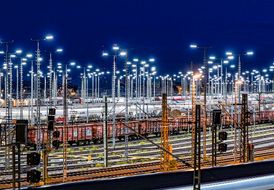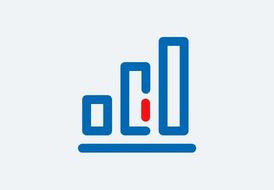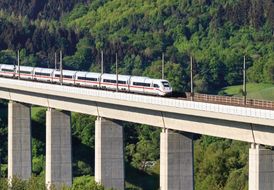Economic framework
| DEVELOPMENT OF IMPORTANT MACROECONOMIC INDICATORS COMPARED TO THE PREVIOUS YEAR / % | 2021 | 2020 | 2019 |
| GLOBAL TRADE (IN REAL TERMS) | |||
Trade in goods | +11.7 | –5.6 | +0.5 |
GDP | |||
World | +5.8 | –3.5 | +2.6 |
USA | +5.7 | –3.4 | +2.3 |
China | +8.1 | +2.2 | +6.0 |
Japan | +1.6 | –4.5 | –0.2 |
Europe | +5.7 | –5.8 | +1.7 |
Eurozone | +5.2 | –6.5 | +1.6 |
Germany | +2.8 | –4.9 | +1.1 |
The data for 2019 to 2021, adjusted for price and calendar effects,are based on information and estimates available as of February 2022.
Source: Oxford Economics
The global economy recorded strong growth in 2021. From a global point of view, the Covid-19-related slump has already been more than compensated for, meaning that economic performance is only slightly below the growth trajectory it was on before the Covid-19 pandemic. However, the recovery has varied in strength between regions and has in some cases been delayed. This has reinforced asymmetries that existed even before the Covid-19 pandemic. For example, China and other Far East economies, which had already been growing strongly before the Covid-19 pandemic, were less severely impaired, or began to recover more rapidly. The same applies to other emerging markets around the world, whereas developing countries were generally hit harder by the pandemic and began to recover later. Among industrialized countries, countries such as the USA recovered very quickly from the slump.
By comparison, European economies were hit relatively hard by the Covid-19 pandemic. The major industrialized countries of Western Europe in particular experienced very severe slumps. Although it began at the end of 2020, the recovery was not as strong as expected. In Germany, the Federal Government implemented greater measures to stimulate the economy than in many other countries, which softened both the recession in 2020 and the subsequent recovery in 2021. Germany also benefited from the renewed increase in global demand for consumer and capital goods.
While Covid-19-related restrictions affected industrial production to a comparatively limited extent, some service sectors, in particular tourism, were very severely restricted. This also had a strong impact in 2021 as passengers avoided booking journeys due to the pandemic restrictions and the pervading uncertainties.
Trade recovered very quickly in comparison to total global economic output, managing to significantly exceed the pre-pandemic level in 2021. As a result, some transport capacities became scarce, leading to significant increases in freight rates. There was also strong demand for many raw materials and other intermediate goods, pushing up prices. This also applied to the price of oil. In some intermediate goods such as semiconductors, the shortages were so severe that growth in other sectors, such as automobile production, was restricted. Rising inflation is restricting the ability of the European Central Bank (ECB) to further stimulate the European economy through an expansionary monetary policy.



